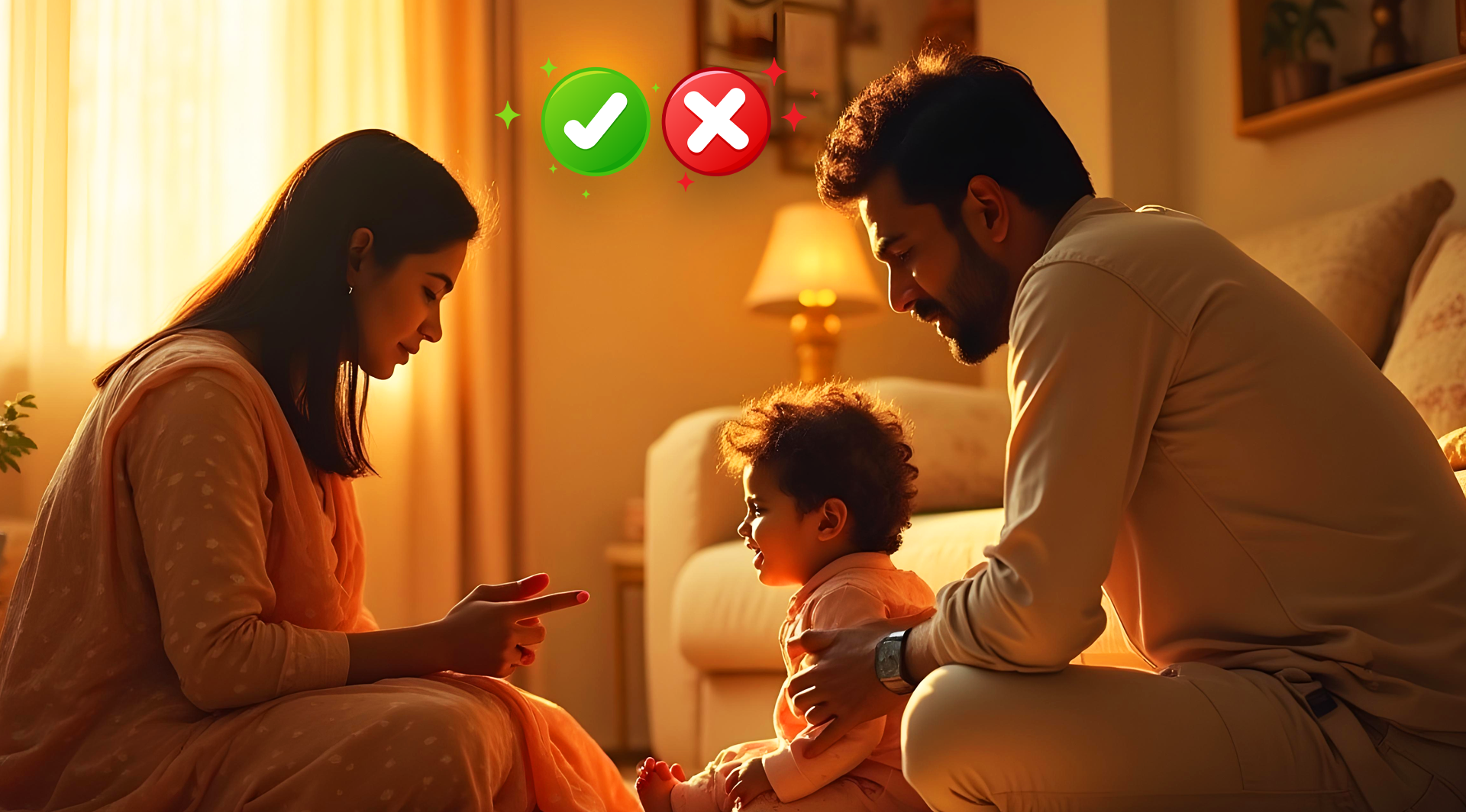Meltdowns can be intense for both children and the adults supporting them. Whether your child is on the autism spectrum or not, meltdowns often come from sensory overload, frustration, or emotional dysregulation, not defiance.
As parents or caregivers, how we respond makes all the difference. Here’s a simplified guide that lays out the Do’s and Don’ts side-by-side to help you navigate meltdowns more confidently and calmly.
DO’s: What Helps During a Meltdown
1. Stay Calm and Regulated
Your energy sets the tone. If you stay grounded, your child will eventually mirror that calm. Breathe deeply, lower your voice, and soften your body language.
2. Create a Safe, Quiet Space
If possible, remove your child from a loud or overwhelming environment. A familiar, low-stimulation spot like a corner with a soft toy or weighted blanket can help them feel safe.
3. Use Simple, Reassuring Words
Avoid long explanations. Just say things like:
– “You’re safe.”
– “I’m here.”
– “Take your time.”
These phrases are comforting without overwhelming.
4. Offer Presence Over Fixing
Sit near them without demanding anything. Let them know they’re not alone. Sometimes, just being there is enough.
5. Reflect Gently After It’s Over
When things settle, revisit the moment without judgment. Ask, “What made it hard?” or “What could help next time?” This builds emotional awareness.
6. Build a Personalized Calm Kit
Identify tools that help fidget toys, noise-canceling headphones, chewables, a stress ball and keep them handy for when signs of distress appear.
7. Look for Patterns and Triggers
Are meltdowns happening at a certain time, place, or after specific events? Noticing patterns helps you prepare or prevent them in the future.
8. Celebrate Small Wins
Even if meltdowns still happen, notice what’s improving: shorter duration, quicker recovery, or better communication. Progress takes time.
9. Involve the Child in Planning
Let them have some say in what helps them feel calm. It gives them agency and helps them feel seen and heard.
10. Take Care of Yourself Too
Parenting through meltdowns is hard. Rest, recharge, talk to someone you trust. You can’t pour from an empty cup.
DON’Ts: What to Avoid During a Meltdown
1. Don’t Yell or Match Their Energy
Shouting or showing frustration can increase their fear and overstimulation. Instead, be calm in their chaos.
2. Don’t Shame or Punish
Meltdowns are not misbehavior. Punishing your child teaches them to hide emotions instead of expressing them safely.
3. Don’t Try to Reason or Explain Mid-Meltdown
Their thinking brain is offline. Long talks, logic, or trying to “correct” behavior during the episode won’t help and might escalate things.
4. Don’t Force Physical Touch
Hugs or holding might soothe some kids but overwhelm others. Always follow their cues. What calms one child may distress another.
5. Don’t Say “You’re Overreacting”
Dismissing their emotions invalidates their experience. Instead, acknowledge the intensity, even if you don’t fully understand it.
6. Don’t Take It Personally
Your child may lash out with words or actions, but it’s not about you. They’re overwhelmed, not trying to hurt you intentionally.
7. Don’t Expect Immediate Results
One strategy won’t magically stop meltdowns. Consistency and patience matter more than perfection.
8. Don’t Compare Your Child to Others
Every child has a different sensory and emotional threshold. Focus on your child’s unique journey and needs.
9. Don’t Ignore Your Own Triggers
If meltdowns bring up strong emotions in you, it’s okay. Reflect on your own needs and seek support if necessary.
10. Don’t Let One Meltdown Define the Day
It’s just one moment, not the full picture of your child or your parenting. Let go, reset, and move forward with compassion.
In Closing
Meltdowns are hard. But they’re not a sign of failure they’re a moment when your child needs you the most. With the right mindset and support, these moments can actually become opportunities for deeper connection and understanding.
This article is for educational purposes. For better accuracy, consult a Child psychologist or Autism Expert
Regards
Dr. Atul Madaan (Autism Expert)
MAAP, MBA, MPhil (Clin. Psy), PhD (Psy)
Operational Head & Clinical Psychologist- Care For Autism (CFA)
8383849217
𝐂𝐀𝐑𝐄 𝐅𝐎𝐑 𝐀𝐔𝐓𝐈𝐒𝐌 (CFA)
One-of-a-Kind Assessment & Remedial Training Centre for Special-needs Children.
📌 Ludhiana : 114, Green Field, Kochar Market Road, Near National Lab, 9646443200
📌 Jalandhar : Hoshiarpur Road, Mubarkpur Shekhein Under Bridge, Near Railway Crossing, 9779725400
Looking for expert Autism treatment in Ludhiana and Jalandhar? At Care For Autism Dr. Atul Madaan and his team provide specialized therapies to support children with autism and developmental challenges. Our services include speech therapy, occupational therapy, child behavioral therapy, and ABA therapy for autism in a nurturing environment.
We offer psychological assessments, all type of remedial intervention. Our parent training programs empower parents and families with essential skills. If you’re searching for the best psychologist in Ludhiana, Jalandhar and Punjab, child speech therapy, or a child development center, we are here to help!
Visit our centres in Ludhiana and Jalandhar for autism therapy, parental training, and educational assessments. Give your child the best support with expert care
#autismdoctorludhiana #autismdoctor #autismdoctorinludhiana #autismspecialist #bestautismdoctor #bestautismdoctorinludhiana #autismbestdoctor #bestautismconsultant #autismconsultant #autismludhiana #autismspecialistinludhiana #dratulmadaan #autismtreatmentludhiana #autismtreatment #autismawareness #sensoryfriendly #adhd #coordination #dyspraxia #sensoryintegration #occupationaltherapy #finemotorskills #grossmotorskills #sensorydiet #sensoryprocessing #autism #autistic #autismacceptance

Leave a Reply